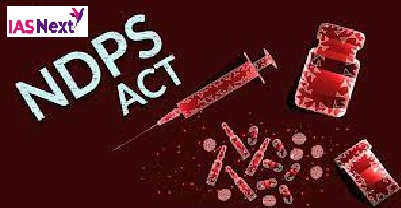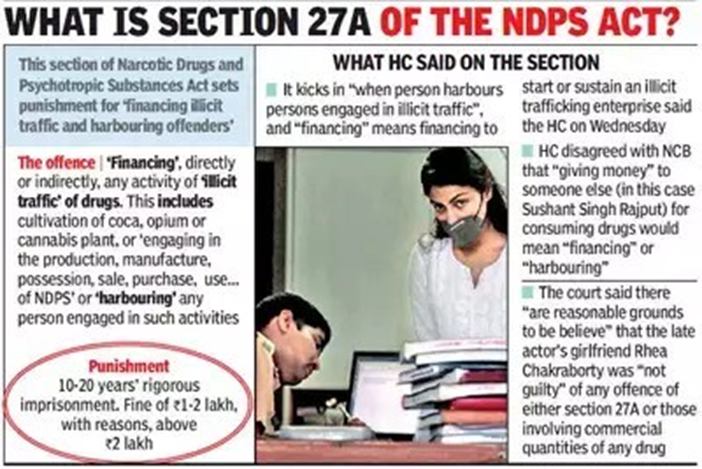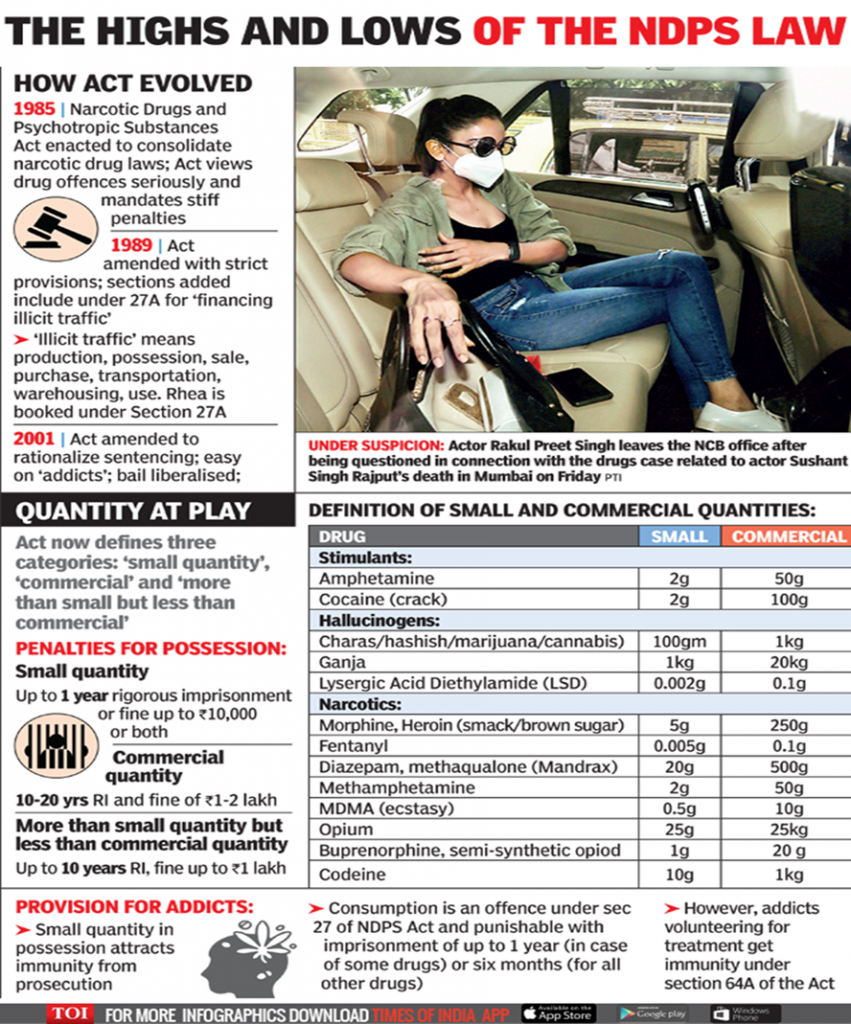CURRENT AFFAIRS
Get the most updated and recent current affair content on Padhaikaro.com
What is NDPS (Amendment) Bill, 2021?
- IAS NEXT, Lucknow
- 08, Dec 2021

Reference News:-
The Narcotic Drugs and Psychotropic Substances (Amendment) Bill, 2021 was recently introduced in Lok Sabha.
- It seeks to replace an ordinance promulgated on September 30 this year.
Objective of the Bill?
The bill was introduced by the government to rectify an error that made provisions in Section 27 of the Act — providing for punishment of those financing illicit trafficking — inoperable.
- This happened in 2014, when the Act was amended in 2014 to ease access of narcotic drugs for medical necessities, but the penal provision was not amended accordingly.
- In June 2021, the Tripura High Court found the oversight in the law and directed the Union Home Ministry to amend the provisions of Section 27.
What necessitated this amendment?
The drafting error was highlighted when an accused moved a special court in Tripura contending that he could not be charged for the offence as Section 27 A is referred to a blank list. The Tripura High Court subsequently asked the Centre to amend the law.

What was the error?
The anomaly crept in when the Narcotic Drugs and Psychotropic Substances (NDPS) Act was amended in 2014 to allow better medical access to narcotic drugs, removing state barriers in transporting and licensing of “essential narcotic drugs”.
- Prior to the 2014 amendment, clause (viiia) of Section 2 of the Act, contained sub-clauses (i) to (v), wherein the term ‘illicit traffic’ had been defined.
- This clause was re-lettered as clause (viiib) by the Narcotic Drugs and Psychotropic Substances (Amendment) Act, 2014, as a new clause (viiia) in section 2 defining ‘essential narcotic drugs’ was inserted. However, inadvertently consequential change was not carried out in section 27A of the NDPS Act.
Criticisms surrounding the Bill:
- Few experts have observed that the Bill violated the fundamental rights of a citizen as it provides retrospective effect to offences starting 2014.
- It also violates the fundamental rights in Article 21 because you can be punished for an offence for which there is a law in existence at the time of commission of the offence.

NDPS Act:
- It prohibits a person from producing, possessing, selling, purchasing, transporting, storing, and/or consuming any narcotic drug or psychotropic substance.
- The NDPS Act has since been amended thrice – in 1988, 2001 and 2014.
- The Act extends to the whole of India and it applies also to all Indian citizens outside India and to all persons on ships and aircraft registered in India.
Indian Government has taken several policy and other initiatives to deal with drug trafficking problem:
- The ‘Nasha Mukt Bharat Abhiyaan’ or a ‘Drugs-Free India Campaign’ was flagged off on 15th August 2020 across 272 districts of the country found to be most vulnerable based on the data available from various sources.
- Ministry of Social Justice & Empowerment has begun implementation of a National Action Plan for Drug Demand Reduction (NAPDDR) for 2018-2025.
- The government has constituted Narco-Coordination Centre (NCORD) in November, 2016.
- The government has constituted a fund called “National Fund for Control of Drug Abuse” to meet the expenditure incurred in connection with combating illicit traffic in Narcotic Drugs; rehabilitating addicts, and educating public against drug abuse, etc.